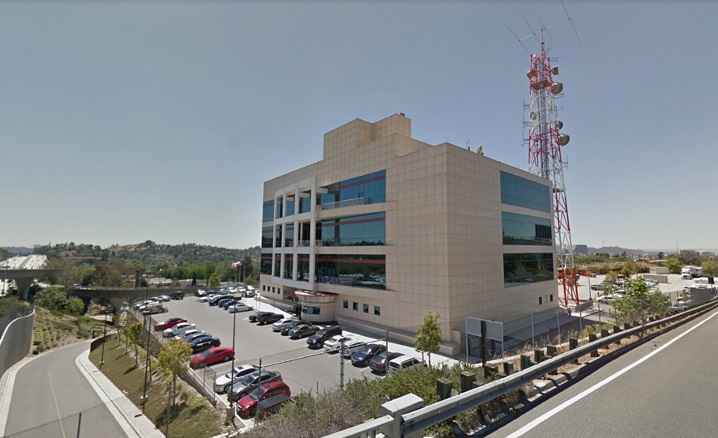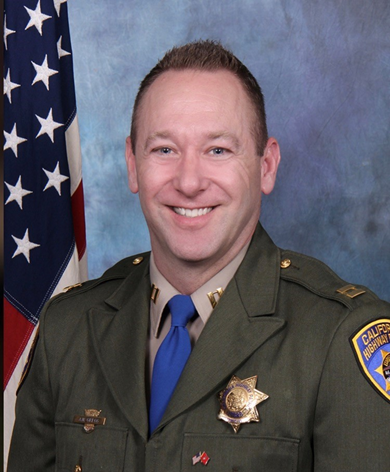(514) Los Angeles Communications Center
 Phone:
Phone: Address:
2901 West Broadway
Hours:
Monday: 24/7
This is a CHP dispatch center. This facility is not open to the public.
Connecting Californians to First Responders
On average, each person will dial 9-1-1 at least twice in their lifetime. Whether facing a major emergency, such as a natural disaster, or reporting a traffic hazard, the dedicated public safety dispatchers at the Los Angeles Communications Center (LACC) ensure help reaches those in need. These professionals form the critical link between first responders and motorists, handling millions of calls annually to keep California’s roadways safe.
LACC serves as the largest Public Safety Answering Point (PSAP) in California and the third largest in the nation, managing over 2.7 million calls annually. Staffed 24/7, over 180 highly trained dispatchers support over 1,500 uniformed personnel and 300 tow truck operators, ensuring a seamless response to emergencies across Los Angeles County’s extensive freeway system.
Highly Trained & Accredited Dispatchers
LACC dispatchers undergo extensive training and are certified by the Commission on Police Officer Standards and Training (POST). These professionals provide critical support for 10 CHP field offices, utilizing statewide, national, and international criminal justice databases to assist in investigations and enforcement operations.
In November 2014, CHP Communications Centers became the first state highway patrol agency in the nation to receive communications accreditation from the Commission on Accreditation for Law Enforcement Agencies (CALEA).
In January 2017, CHP Communications Centers were certified by the Association of Public-Safety Communications Officials (APCO) International, recognizing their excellence in public safety communications.
Advanced Communications Technology & Facilities
LACC operates from an 18,000-square-foot facility, equipped with 54 state-of-the-art dispatch consoles for managing radio communications, telephone operations, and Computer-Aided Dispatch (CAD) functions. The center also oversees:
-
- The Traffic Management Center (TMC)
- Metro’s Freeway Service Patrol (FSP) tow trucks
- Metro’s Express Lanes operations
- The Intelligence, Records, and Investigative Support (IRIS) Unit, which provides real-time intelligence to assist field officers in criminal investigations, vehicle tracking, and other law enforcement operations.
COMMANDER'S MESSAGE
Andrew Gregg
Captain, California Highway Patrol
Every second counts when you call 9-1-1. Whether you're reporting a traffic collision, a reckless driver, or a roadside emergency, the dispatchers at the Los Angeles Communications Center (LACC) are your first point of contact for help. These professionals work behind the scenes 24/7, ensuring first responders arrive quickly and our freeways remain safe.
LACC is the largest Public Safety Answering Point (PSAP) in California, and our dedicated team of over 180 dispatchers handles millions of emergency and non-emergency calls each year. But we can’t do it alone—we need you, the public, to be part of the safety solution.
When should you call 9-1-1?
- Emergencies – Crashes, road hazards, reckless drivers, and crimes in progress.
- Non-Emergencies – Use CHP's non-emergency line for reporting minor incidents.
- Know your location – Providing mile markers, exit names, or freeway directions helps dispatchers send help faster.
As Captain of LACC, I am committed to ensuring that every call is answered with urgency, professionalism, and care. Our Intelligence, Records, and Investigative Support (IRIS) Unit provides real-time intelligence to assist field officers in keeping California’s roadways safe.
Whether you're a California resident, commuter, or visitor, know that we are here for you—day and night, rain or shine.
Drive safely. Stay alert. And trust that when you need help, CHP dispatchers are only a call away.
Captain Andrew Gregg's Background
Captain Andrew Gregg has over 22 years of law enforcement experience and has served in various leadership roles within the California Highway Patrol (CHP) and the United States Marine Corps.
Career & Leadership
Captain Gregg began his CHP career in 2002 at the San Francisco Area office, where he was assigned to the Safety Service Program (SSP), responsible for protecting California State properties. His extensive field experience includes roles as an Officer in Charge (OIC), Field Training Officer (FTO), and Commercial Vehicle Officer.
In 2005, Captain Gregg moved to Los Angeles to join the Los Angeles County Auto Insurance Fraud Task Force, where he worked alongside allied agencies to investigate high-profile cases, including the Black Widow Murders.
Captain Gregg has since held key leadership positions, including:
- San Jose Area (2010) – Field Sergeant
- Central Los Angeles Area (2014) – Field Operations Lieutenant
- Southern Division (2015) – Executive Lieutenant, overseeing Training, Community Engagement, and Special Response Teams
- Altadena Area (2017-2022) – Field Operations Lieutenant, responsible for security at major events, including:
- Tournament of Roses Parade & Rose Bowl Games
- Major League Baseball postseason games
- Super Bowl LVI security operations
- Protective services for U.S. officials & foreign dignitaries
LACC Leadership & Vision
On July 1, 2022, Captain Gregg assumed command of LACC, leading over 230 sworn and civilian employees. Under his leadership, LACC has maintained high call-answering performance while advancing training, technology integration, and operational excellence.
Military & Education
Captain Gregg served in the United States Marine Corps from 1997 to 2002 as a Field Artillery Officer.
He holds:
- Bachelor of Science in Transportation & Logistics – Iowa State University (1997)
- Master’s Degree in Security Studies – Naval Postgraduate School (2019)

